I vantaggi di avere due cani invece di uno
Tutto quello che devi sapere prima di espandere la tua famiglia di cani
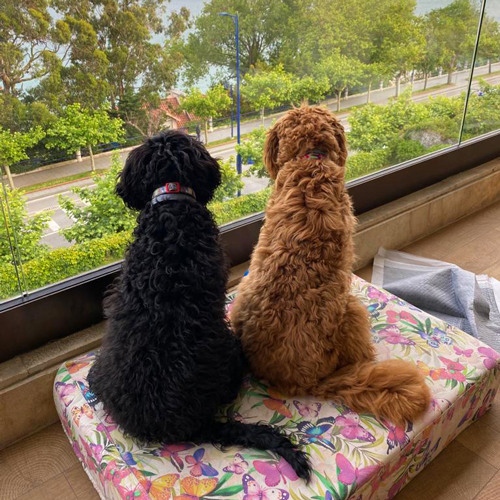
È MEGLIO AVERE DUE CANI O UNO SOLO?
Tempo di lettura approssimativo: 5 minuti
Il rapporto che hai con il tuo cane è così speciale che non ci sorprende che tu stia pensando di aggiungere un nuovo amico a quattro zampe alla famiglia. I cani sono esseri leali, amorevoli e molto divertenti che ci riempiono di felicità. Pertanto è logico pensare di adottare un nuovo animale domestico che diventerà anche il miglior compagno del nostro cane. I vantaggi di condividere la vita con due cani, invece che con uno solo, sono molti, anche se il più importante è aggiungere felicità alla tua vita quotidiana. Questo è assicurato!
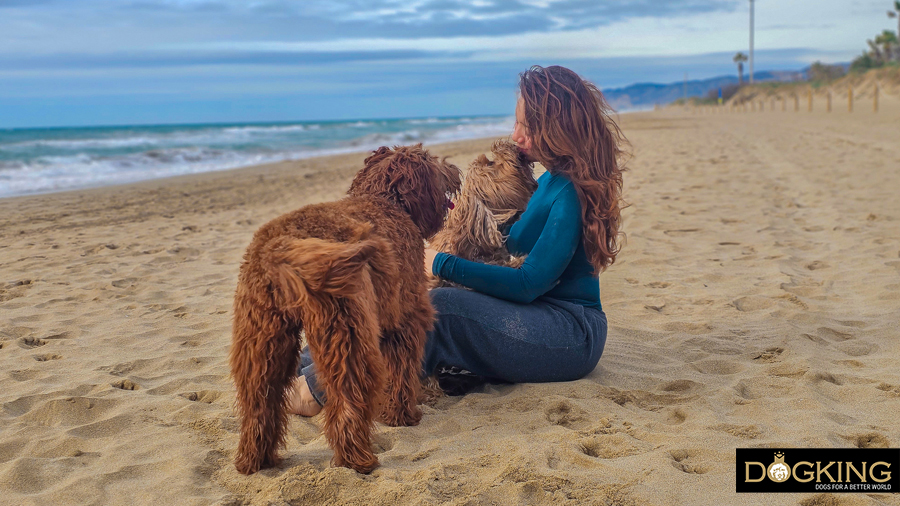
Indice dei contenuti
1- I vantaggi di avere due cani
2- Come introdurre un altro cane in famiglia?
I vantaggi di avere due cani
Se il tuo cane è il padrone del tuo cuore ma vuoi aprire le porte della tua casa ad un nuovo amico a quattro zampe, congratulazioni! È meraviglioso voler assumersi la responsabilità di prendersi cura di un animale, garantire il suo benessere e offrirgli il proprio amore e la propria sicurezza... per la seconda volta! D'altra parte, probabilmente non vedi l'ora di raddoppiare l'affetto del tuo cane nella tua vita, e forse hai anche considerato che un nuovo compagno a quattro zampe potrebbe aiutare il tuo cane a sentirsi meno solo quando non sei con lui. Vediamo quali vantaggi può offrirti avere due cani invece di uno.
Il miglior compagno per il tuo cane
Innanzitutto vogliamo chiarire che se ritieni di non avere abbastanza tempo nella tua vita da dedicare al cane che già hai, non dovresti mai averne un altro, nemmeno per fargli compagnia. È vero però che avere un altro amico sempre al tuo fianco può aiutare il tuo primo amico a quattro zampe a non sentirsi così solo in quei momenti in cui non puoi stare al suo fianco, come quando vai al lavoro. Se hai spazio, tempo e risorse, provaci! Con un adeguato tempo di adattamento, è molto probabile che i due cani diventino grandi amici. Giocheranno insieme, si accoccoleranno insieme per dormire e si stimoleranno a vicenda. Avere due cani invece di uno solo può aiutare il tuo cane a combattere la solitudine e la noia, evitando disturbi come l'ansia da separazione.
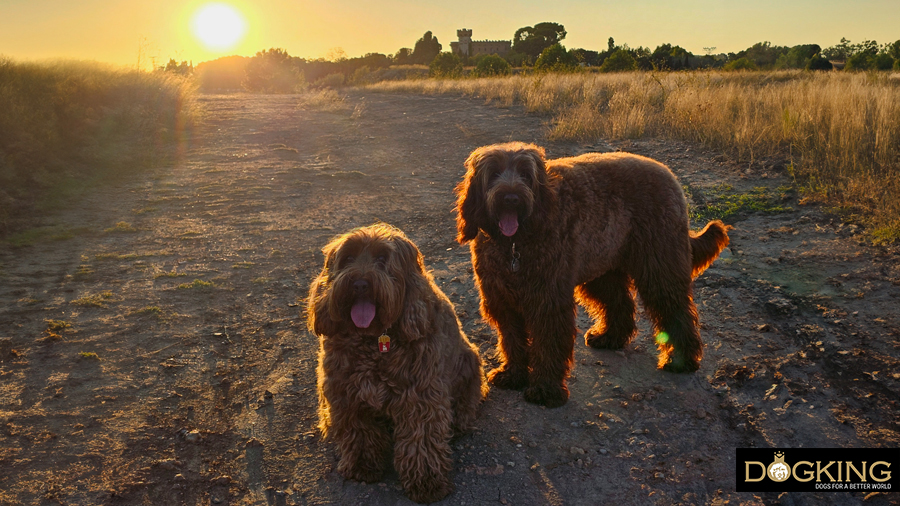
Socializzazione con un membro della sua specie
Sebbene i cani siano grandi amici degli esseri umani e apprezzino molto la loro compagnia, hanno anche bisogno di interagire con i membri della propria specie. In questo modo, consolidano l'apprendimento dei codici comunicativi che hanno già iniziato a sperimentare nella loro cucciolata, con la madre e i fratelli, stabiliscono dei limiti e si connettono con il proprio istinto e la propria natura. Normalmente, questo contatto tra cani avviene per strada, durante la passeggiata. Ma se hai un altro cane a casa, il tuo amico a quattro zampe avrà il privilegio di interagire con un altro cane 24 ore al giorno. Attenzione, questo non sostituisce la socializzazione con gli altri cani, ma sarà sicuramente qualcosa di molto positivo per la loro salute mentale. Inoltre, avere un altro cane in casa può aiutare il tuo cane a interagire meglio con gli altri cani che incontra ogni giorno all'aperto.
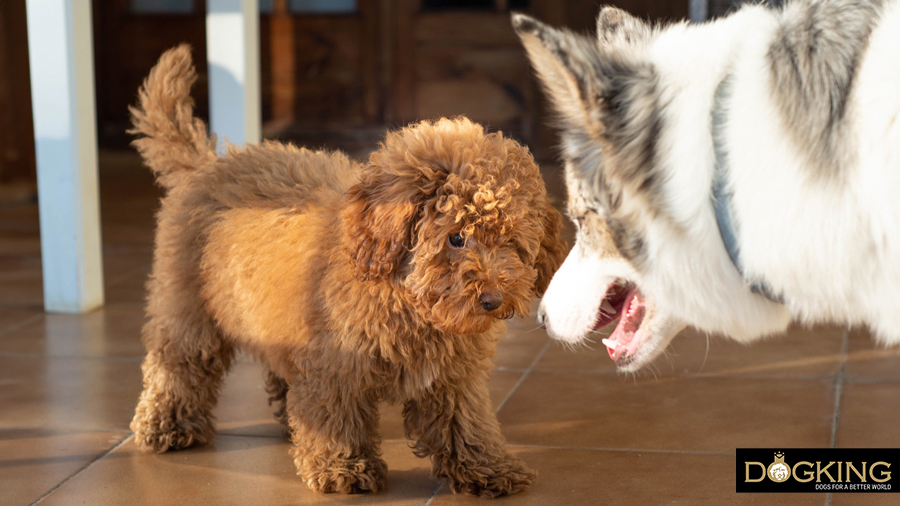
Facilita l'educazione del tuo cucciolo
Se hai già un cane e stai pensando di adottare un cucciolo, sappi che la presenza di un cane adulto sarà molto positiva per il suo sviluppo e apprendimento. I cani anziani spesso fungono da guide per i cuccioli, che imitano i loro comportamenti e imparano dai loro limiti. Pertanto, se il tuo cane adulto è ben educato e inizi ad addestrare il tuo cucciolo, sarà molto più facile per te avere quel riferimento del suo “fratello maggiore”. Che belle notizie!
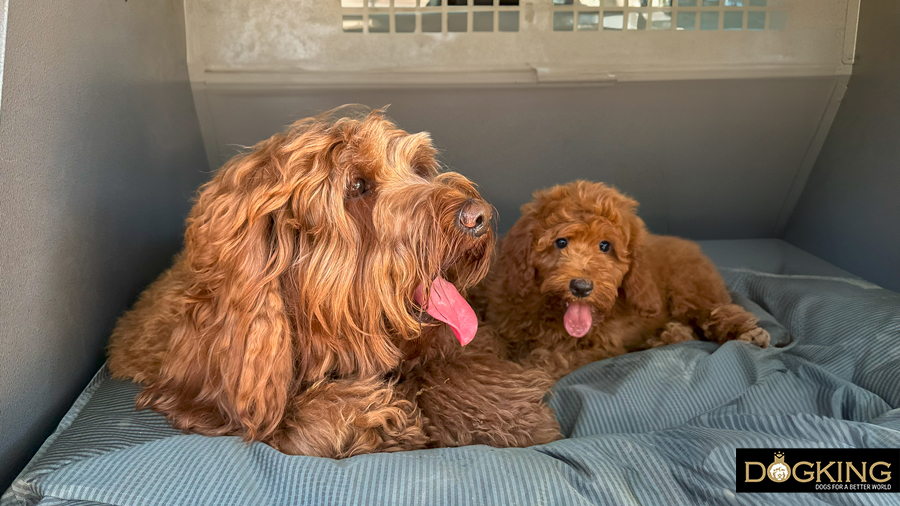
Più motivazione, più esercizio
Anche se questo può variare a seconda dell'età e del temperamento di ciascun animale, normalmente un secondo cane, soprattutto se cucciolo, motiva il primo a giocare e, quindi, a fare esercizio e rimanere attivo. Purché vi sia compatibilità di carattere ed energia, i cuccioli riempiono di gioia e stimoli i cani adulti, mentre questi ultimi, come abbiamo visto prima, aiutano i loro piccoli amici ad acquisire buoni comportamenti e a rispettare i propri limiti.
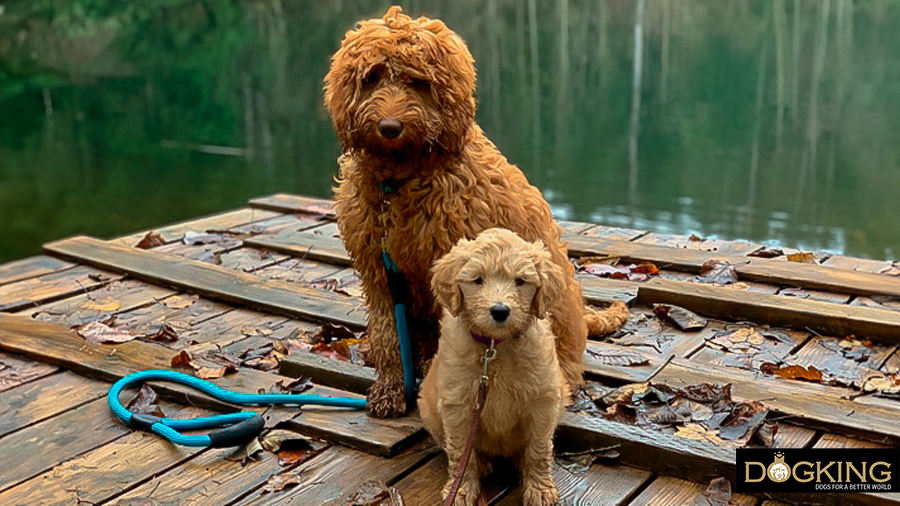
Doppio amore per te
Accogliere un nuovo cane in casa è una grande responsabilità, ma significa senza dubbio raddoppiare la quantità di amore che riceverai ogni giorno. Tieni presente che avendo due cani, ce ne sarà quasi sempre uno che vuole giocare o è sveglio per una sessione di coccole. Avere un nuovo animale domestico può essere una sfida, ma l'amore e la gioia che questi incredibili animali offrono in cambio ne vale la pena. Immagina quanto ami il tuo cane e moltiplicalo per due. Che meraviglia!

Come introdurre un altro cane in famiglia?
Molte persone temono che, avendo un secondo cane, il primo sviluppi un comportamento di gelosia o, in generale, di conflitto. Per evitare questi problemi e facilitare una buona convivenza tra i due cani, consigliamo che la presentazione avvenga in un luogo neutro. A poco a poco, lasciate che entrambi trascorrano del tempo insieme, se possibile, aumentando gradualmente la durata di questi incontri e assicurandovi sempre che entrambi abbiano i loro oggetti e i loro spazi ben definiti. Con pazienza e un po' di tempo per adattarsi, è molto probabile che i vostri due cani finiranno per andare d'amore e d'accordo. Molti diventano amici inseparabili!